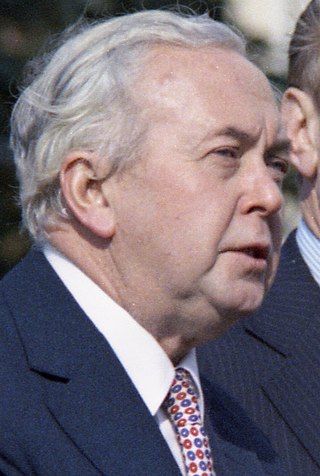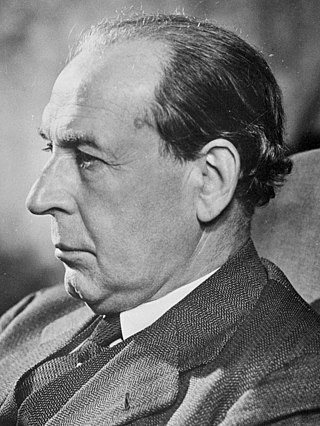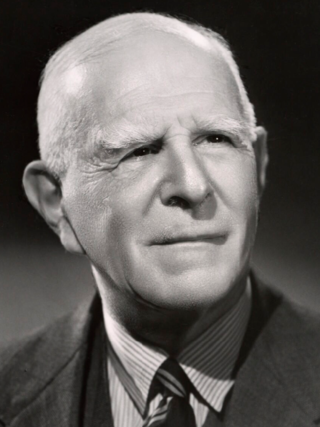Related Research Articles

The October 1974 United Kingdom general election took place on Thursday 10 October 1974 to elect 635 members of the House of Commons. It was the second general election held that year; the first year that two general elections were held in the same year since 1910; and the first time that two general elections were held less than a year apart from each other since the 1923 and 1924 elections, which took place 10 months apart.

The 1989 European Parliament election, was the third European election to be held in the United Kingdom. It was held on 15 June. The electoral system was First-past-the-post voting in England, Scotland and Wales and Single transferable vote in Northern Ireland. The turnout was again the lowest in Europe.
John Robertson was a British politician, who sat as a Labour Member of Parliament before co-founding the Scottish Labour Party (SLP) in 1976.
A safe seat is an electoral district which is regarded as fully secure, for either a certain political party, or the incumbent representative personally or a combination of both. With such seats, there is very little chance of a seat changing hands because of the political leanings of the electorate in the constituency concerned or the popularity of the incumbent member. This contrasts with a marginal seat in which a defeat for the seat holder is considered possible. In systems where candidates must first win the party's primary election, the phrase "tantamount to election" is often used to describe winning the dominant party's nomination for a safe seat.

Scottish Labour, is the part of the UK Labour Party active in Scotland. Ideologically social democratic and unionist, it holds 22 of 129 seats in the Scottish Parliament and 37 of 57 Scottish seats in the House of Commons. It is represented by 262 of the 1,227 local councillors across Scotland. The Scottish Labour party has no separate Chief Whip at Westminster.
Sylvia Jackson was a Scottish Labour Party politician, and former Member of the Scottish Parliament (MSP).
The Glasgow Bridgeton by-election was held on 29 August 1946, following the death of Independent Labour Party (ILP) Member of Parliament for Glasgow Bridgeton, James Maxton.
The 1929 Kilmarnock by-election was a by-election held on 27 September 1929 for the British House of Commons constituency of Kilmarnock in Ayrshire.
The 1935 Combined Scottish Universities by-election was a by-election held from 17 to 22 June 1935 for the Combined Scottish Universities, a university constituency of the British House of Commons.

The 1938 Combined Scottish Universities by-election was a by-election held from 21 to 25 February 1938 for the Combined Scottish Universities, a university constituency of the British House of Commons.

The 1936 Combined Scottish Universities by-election was a by-election held from 27 to 31 January 1936 for the Combined Scottish Universities, a university constituency of the British House of Commons.
The 1946 Combined Scottish Universities by-election was a by-election held from 22 to 27 November 1946 for the Combined Scottish Universities, a university constituency of the British House of Commons.
The 1927 Combined Scottish Universities by-election was a by-election held from 26 to 29 April 1927 for the Combined Scottish Universities, a university constituency of the British House of Commons.
The 1934 Combined Scottish Universities by-election was a by-election held from 7 to 12 March 1934 for the Combined Scottish Universities, a university constituency of the British House of Commons.
The 1946 Kilmarnock by-election was a by-election held on 5 December 1946 for the British House of Commons constituency of Kilmarnock in Ayrshire.
The 1933 Kilmarnock by-election was a by-election held on 2 November 1933 for the House of Commons constituency of Kilmarnock in Ayrshire.

The 2011 United Kingdom local elections were held on Thursday, 5 May. In England, direct elections were held in all 36 metropolitan boroughs, 194 second-tier district authorities, 49 unitary authorities and various mayoral posts, meaning local elections took place within all parts of England with the exceptions of seven unitary authorities, and seven districts and boroughs. For the majority of English districts and the 25 unitary authorities who were "all-up" for election at the end of their four-year terms, these were the first elections since 2007. In Northern Ireland, there were elections to all 26 local councils. Elections also took place to elect members of most English parish councils.
Events from the year 1946 in Scotland.

Elections to Liverpool City Council were held on Thursday 1 November 1945. It was the first local election in which all those who qualified for a parliamentary vote could vote.

An election to the County Council of London took place on 7 March 1946. The council was elected by First Past the Post with each elector having two votes in the two-member seats. The Labour Party once more made gains, again increasing their majority over the Conservative Party.
References
- ↑ Leigh Rayment's Historical List of MPs
- ↑ "1946 By Election Results". Archived from the original on 5 November 2013. Retrieved 11 August 2015.
- ↑ Scottish Conservative and Unionist Central Office, The Yearbook for Scotland (1967), p.86